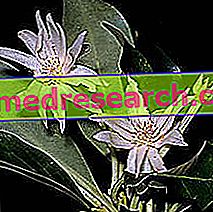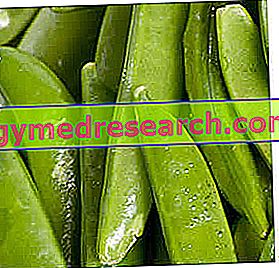
Scientific name
Illicium verum, Illicium anisatum L.
Family
MagnoliaceaeOrigin
China, Philippines and Japan
Synonyms
Star anise is also known as Badiana
Used Parts
In pharmacology the fruits are usedChemical constituents
- Cumarine and Furocumarine;
- Essential oil rich in anethole;
- triterpenes;
- Polyphenols;
- Flavonoids
Star Anise in Herbal Medicine: Properties of the Star Anise
Star anise is used as an antispasmodic, stimulant and stomachic; the main properties include digestive, carminative, stimulating exocrine, galactogogic and balsamic glands.
Biological activity
Stomach and eupeptic properties are attributed to star anise; for this reason, it is not uncommon for the plant to be used as a remedy to counteract the loss of appetite (officially approved use).
However, these are not the only properties that star anise is endowed with. In fact, the plant is also associated with expectorant and antispasmodic activity against the gastrointestinal tract. More precisely, the essential oil and flavonoids contained within the star anise are able to exert a bronchosecretolytic type of action and to induce the relaxation of the gastrointestinal smooth muscle.
The secretolytic activity carried out by the essential oil is particularly useful in the case of inflammatory diseases of the respiratory tract, for the treatment of which, among other things, the use of star anise has been officially approved.
Furthermore, a recent study conducted on animals has shown that the ethanolic extract of star anise fruits can be a potential and valid aid in preventing and combating hyperlipidemia and atherosclerosis. However, before being able to approve a similar application of the plant in the medical field, in-depth clinical studies are certainly necessary, in such a way as to assess its real therapeutic efficacy and safety in use.
Star anise against inappetence
As mentioned, thanks to the eupeptic and stomachic properties of which the star anise - in particular, its essential oil - is equipped, the use of this plant has been officially approved to counteract the loss of appetite.
Generally, it is recommended to take about three grams of drug, or 0.3 grams of essential oil a day.
Star anise against cough and bronchitis
By virtue of the secretolytic properties of the essential star anise oil, its use can be particularly useful in the case of inflammation of the respiratory tract - such as bronchitis - in the case of coughing and in the case of other types of catarrhal diseases which affect the airways.
Also in this case, the usually recommended daily dose is about 0.3 grams of essential star anise oil, or about three grams of drug.
Star anise in folk medicine and homeopathy
The properties of star anise are also known to folk medicine, which uses it - especially in herbal teas - for the treatment of dyspeptic disorders and as a remedy against the catarrh of the respiratory tract.
Furthermore, traditional medicine also attributes galactogogue properties to this plant and therefore uses it to promote and increase the production of breast milk after delivery.
In Indian medicine, on the other hand, star anise is used as a remedy for flatulence, digestive disorders, diarrhea and intestinal spasms, and is even used for the treatment of rheumatoid arthritis and even as a remedy to counteract paralysis facial and hemiparesis.
Star anise is also used in homeopathy, where it can be found in the form of mother tincture or globules. In this context, the plant is used to promote the production of breast milk and as a remedy for low back pain.
The dose of homeopathic remedy to be taken can be different between one individual and another, also depending on the type of disorder and the type of homeopathic preparation and dilution that is to be used.
Contraindications
Ease of sunburn, liver disease, epilepsy. Ascertained hypersensitivity to one or more components of the star anise.
Pharmacological Interactions
- enhancement of NSAID or cortisone gastrolesivity;
- possible interactions in relation to the estrogenic activity of anethole;
- sum of effects with photosensitizing drugs.
Note
Due to the presence of furocumarine, star anise is photosensitizing.
Warnings
Described numerous cases of intoxication from star anise adulterated with Shikimi, or Japanese star anise ( Illicium religiosum ).



